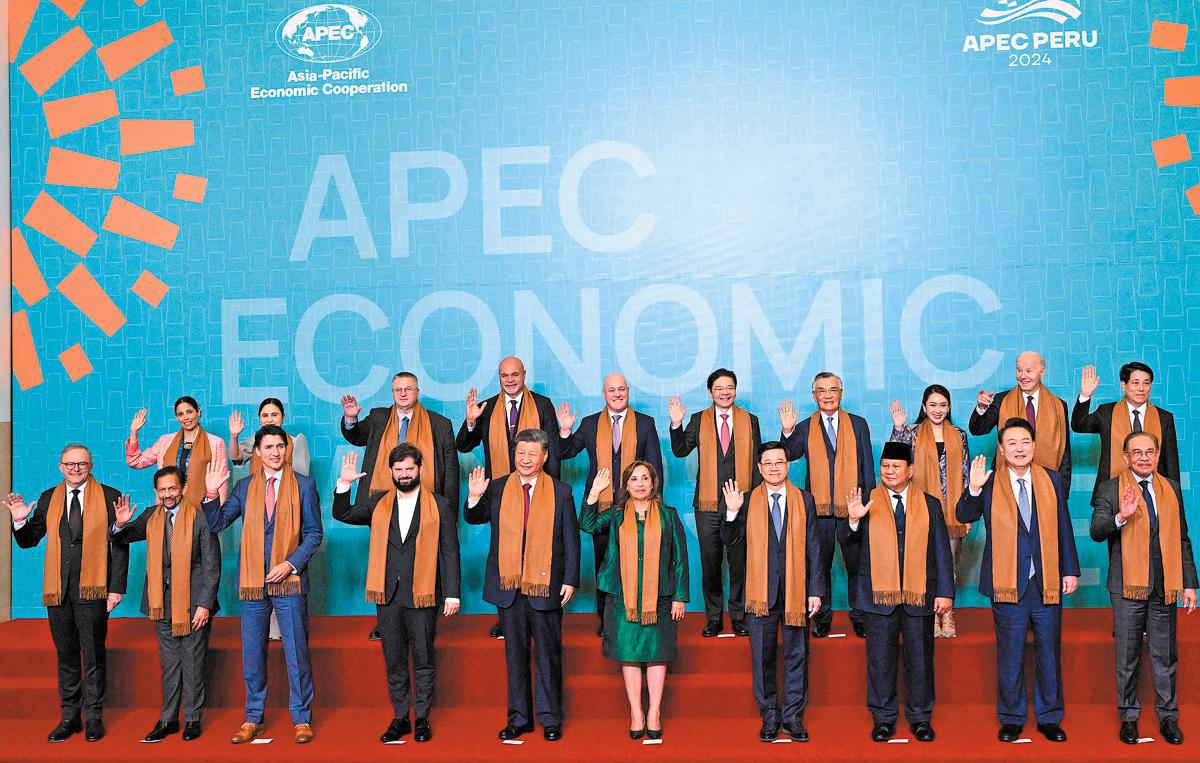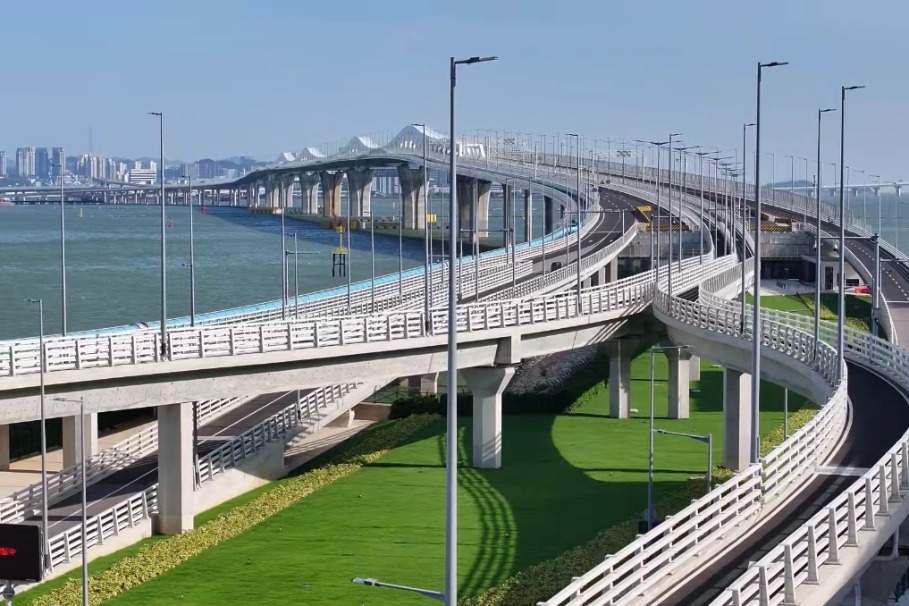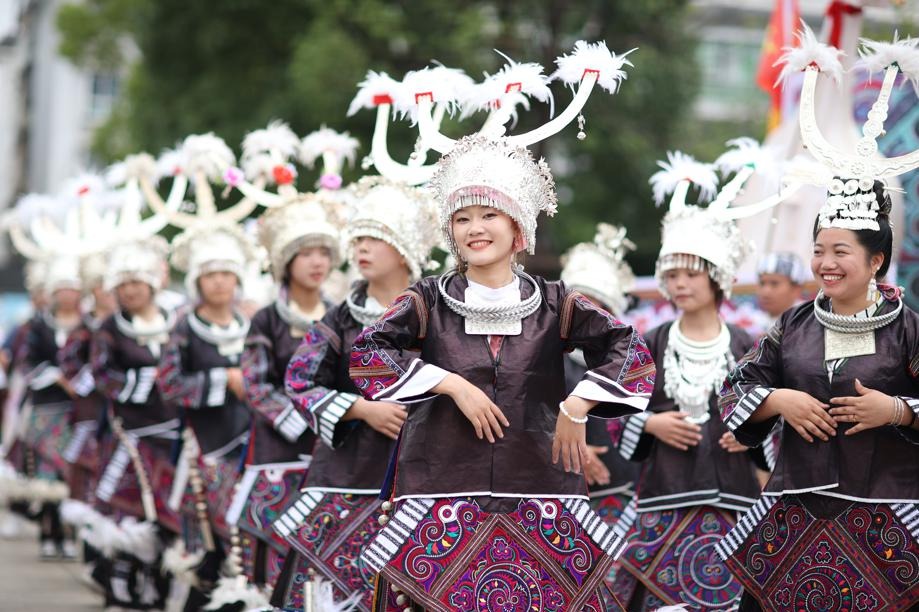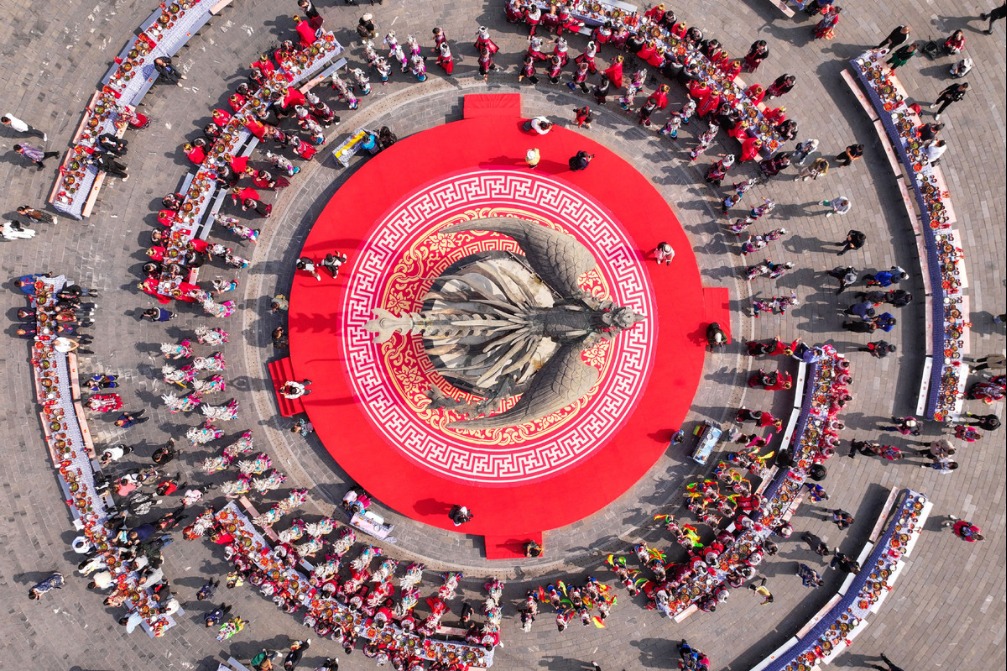Joint effort urged to meet challenges facing Asia-Pacific
Meeting: Seizing opportunities urged amid sci-tech revolution


President Xi Jinping proposed on Saturday building an open and interconnected paradigm for Asia-Pacific cooperation, with efforts to advance regional economic integration and "tear down the walls" impeding the flow of trade, investment, technology and services.
Addressing the 31st APEC Economic Leaders' Meeting, Xi called on Asia-Pacific countries to act in solidarity and cooperation to meet the challenges facing Asia-Pacific cooperation, such as rising tendencies of geopolitics, unilateralism and protectionism.
"At this historic crossroads, we Asia-Pacific countries carry greater responsibilities on our shoulders," he said in the speech.
Xi announced that China will host the APEC Economic Leaders' Meeting in 2026, marking the third time — after 2001 and 2014 — that China will host the gathering since APEC's founding in 1989.
The Chinese president's proposal is an active move to steer the world economy back onto the correct track of globalization, and it is also a commitment by the world's second-largest economy to further opening-up and common development for the world, particularly the Global South countries, experts said.
APEC, which consists of 21 members, accounts for approximately 38 percent of the world's population, 60 percent of its total GDP and 47 percent of its trade.
"A Free Trade Area of the Asia-Pacific is an ambitious vision for regional economic integration and is critical for long-term development and prosperity of our region," Xi said in the speech.
Ten years ago, a historic decision to kick off the process for a Free Trade Area of the Asia-Pacific was made at the gathering of APEC economic leaders in Beijing.
"Today, we will adopt a new document to guide this process. I believe that this will give new impetus to our efforts toward an open Asia-Pacific economy," Xi said.
Chen Taotao, a professor at the School of Economics and Management at Tsinghua University in Beijing, said that regional economic integration has been proved to be an efficient economic operating model in the process of globalization.
"In recent years, due to geopolitical reasons, some countries have intentionally adopted high tariffs and other methods to restrict the normal global layout of Chinese high-tech enterprises in certain industries in order to suppress China's development," she said.
Chen, who is also director of Tsinghua University's Latin America Center, said that in this process, developing countries — including many Latin American countries — have strongly felt the damage caused to their economies by such instability.
Xi told other leaders of APEC member economies that opening-up is a distinct hallmark of Chinese modernization, and he reiterated the country's commitment to promoting reform through opening-up.
"We voluntarily subscribe to high-standard international economic and trade rules, adopt proactive measures for further opening-up, and take systematic steps to further open the telecom, internet, education, culture, medical service and other sectors," he said.
China signed a protocol to upgrade the free trade agreement with Peru on Thursday and substantially concluded negotiations last month with the Association of Southeast Asian Nations to upgrade to free trade area 3.0.
"Together with the relevant parties, we will seek to discuss trade agreements in digital and green areas and steadily expand the globally oriented network of high-standard free trade areas," Xi said.
He added that China welcomes all parties to continue riding the "express train" of its development and grow together with the Chinese economy.
To start a new era in Asia-Pacific development, the Chinese president also proposed to make green innovation a catalyst for the Asia-Pacific and uphold a universally beneficial and inclusive vision for Asia-Pacific development.
"We need to firmly seize the opportunities presented by the new round of sci-tech revolution and industrial transformation and strengthen exchanges and cooperation in artificial intelligence, quantum information, life and health, and other frontier areas," Xi added.
The Chinese president also called for more support for developing economies and disadvantaged groups and for nations to work together to increase the pie and distribute it equitably to allow more economies and people to benefit from development.
Three outcome documents, including the Ichma Statement on a New Look at the Free Trade Area of the Asia-Pacific, were adopted after the meeting on Saturday.
Liu Chenyang, director of Nankai University's APEC Study Center, said the outcomes hold positive significance in determining the role of the Global South amid a complicated global landscape.
mojingxi@chinadaily.com.cn



































